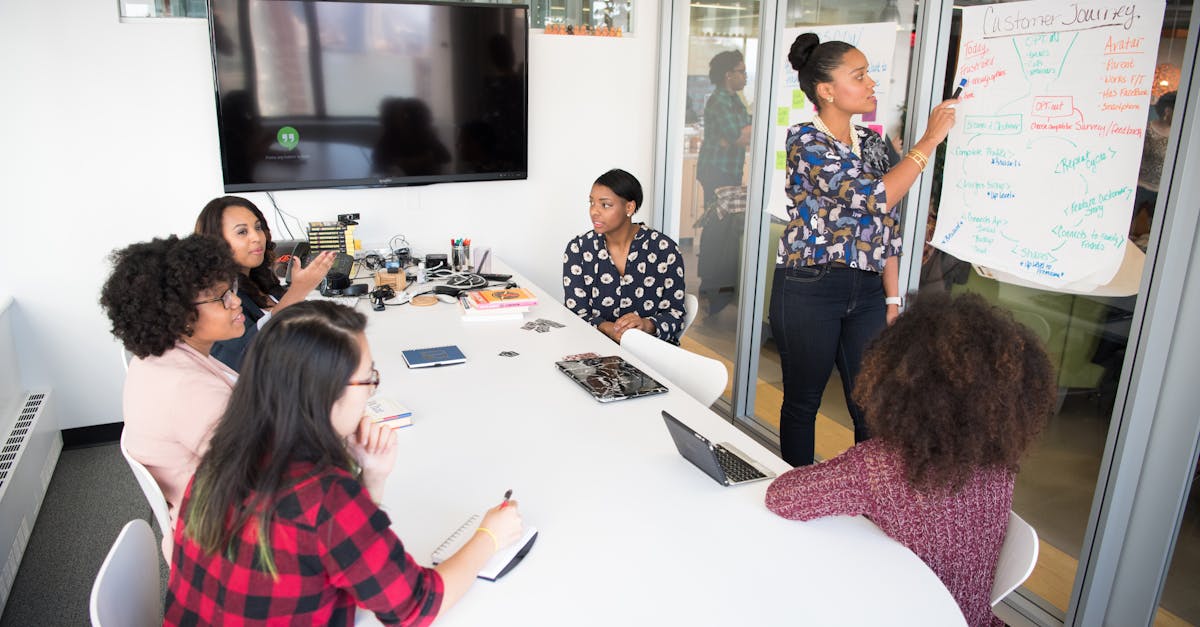
ams. Through feedback training, emerging leaders can learn how to deliver constructive criticism effectively while also being open to receiving feedback for their own personal growth.Training programs can enhance active listening skills in the workplace by providing employees with tools, techniques, and feedback to improve their listening abilities. Role-playing exercises and real-life scenarios can also be incorporated to simulate conflict situations and practice active listening.
Effective feedback training equips emerging leaders with the ability to communicate feedback in a clear and professional manner. It helps them understand the impact their words can have on team members and how to tailor their feedback to encourage growth and development. By investing in feedback training for emerging leaders, organisations can nurture a culture of open communication and collaboration that ultimately drives success and innovation.How can the effectiveness of active listening in conflict resolution be measured?
Developing Skills to Give and Receive FeedbackThe effectiveness of active listening in conflict resolution can be measured by evaluating feedback and outcomes. This can include assessing whether conflicts are resolved more efficiently, if communication has improved, and if relationships in the workplace have strengthened as a result of active listening practices.
Developing the skills to give and receive feedback is essential for effective leadership. Leaders who excel in this area are able to provide constructive criticism, guidance, and encouragement to their team members. They understand the importance of delivering feedback in a way that is clear, specific, and respectful.How can active listening techniques be implemented in team meetings?
On the other side, being open to receiving feedback is just as crucial. Leaders who are receptive to feedback demonstrate humility and a willingness to learn and grow. By actively seeking input from their team members, they show that they value collaboration and are committed to continuous improvement. Ultimately, mastering the art of giving and receiving feedback can lead to stronger relationships, higher performance levels, and a more successful team dynamic.Active listening techniques can be implemented in team meetings by encouraging open dialogue and collaboration. This involves creating a safe an
adership approach and achieve greater success in their roles.Active Listening Strategies for Improving Client Relationships
Continuous improvement through feedback evaluation also extends to team dynamics and performance. Leaders who use feedback effectively can create a culture of open communication and collaboration within their teams. By providing constructive feedback to team members and encouraging them to give feedback to one another, leaders can foster a supportive environment where everyone is committed to personal and collective growth. This feedback loop not only enhances individual performance but also contributes to the overall success of the team as they work together towards shared goals.Active Listening as a Key Element of Successful Business Communication
Monitoring Progress Through Feedback Loops
Feedback loops are essential tools for monitoring progress and ensuring that a team is on track towards its goals. By creating a continuous feedback system, leaders can stay informed about the team's performance and make necessary adjustments in a timely manner. This iterative process of providing feedback, analysing outcomes, and adapting strategies helps to maintain focus and momentum within the team.
Effective feedback loops involve clear communication channels where team members can provide input and receive insights on their performance. Leaders should establish a culture where feedback is encouraged and valued, fostering an environment of openness and collaboration. By incorporating feedback loops into regular team meetings or project milestones, leaders can empower their team members to take ownership of their progress and collectively work towards achieving shared objectives.
FAQS
What is the importance of feedback in leadership development?
Feedback plays a crucial role in leadership development as it provides valuable insights to leaders on their strengths and areas needing improvement, helping them enhance their performance and effectiveness.
How can emerging leaders benefit from feedback training?
the impact of feedback on performance, identify areas of improvement, and make informed decisions to drive continuous improvement and success within the team.
Related Links
The Role of Feedforward in Business CoachingNurturing Growth Through Feedback and Feedforward
Harnessing the Power of Feedforward in CoachingTerms of Use
Feedback Techniques for Professional Development
Creating a Culture of Constructive Feedback
Integrating Feedback into Coaching Practices
Using Feedforward to Enhance PerformancePrivacy Policy